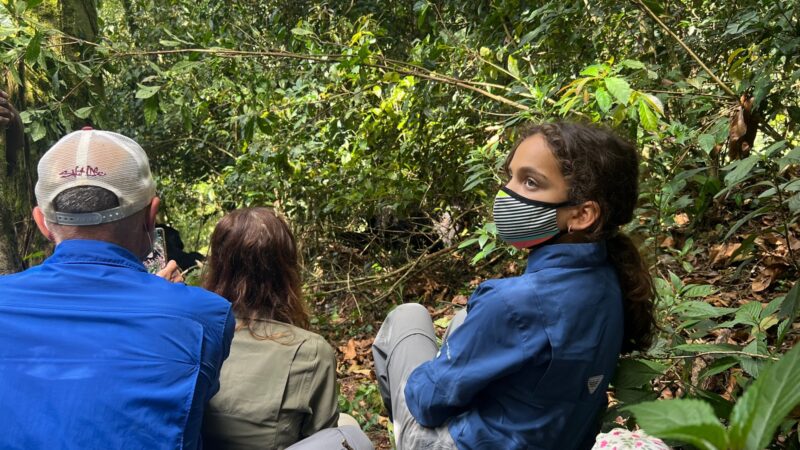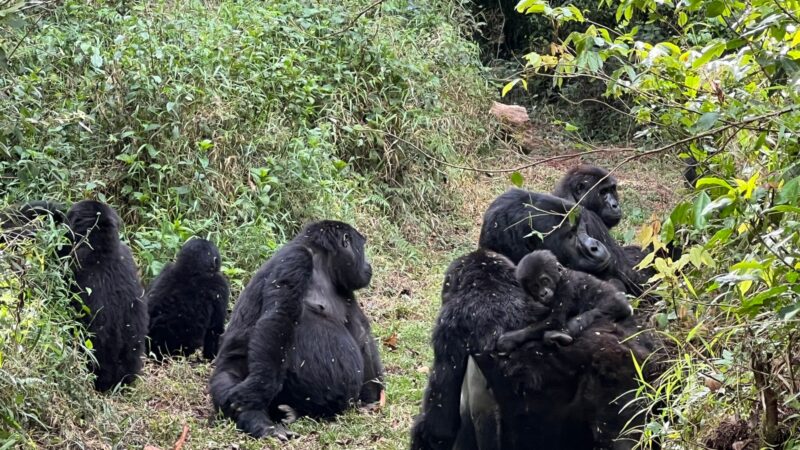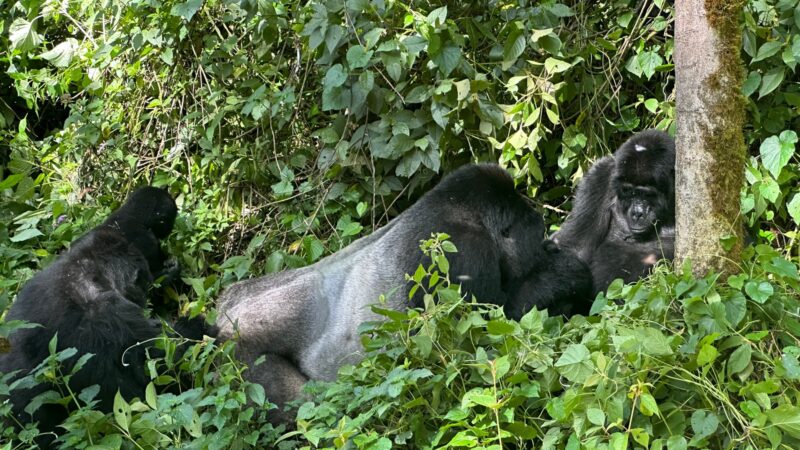Are There Health Risks Associated with Gorilla Trekking?
Yes, some health risks are associated with gorilla trekking, primarily related to the physical demands of the activity and the environment in which it occurs. Gorilla trekking safaris often involve hiking through dense forests with uneven terrain, which can be physically demanding, especially at higher altitudes. Participants should be in reasonably good health and fitness to handle the trekking distances and elevation changes.
Regarding specific health risks, one concern is the potential transmission of diseases between humans and gorillas. Gorillas are susceptible to many human illnesses, such as respiratory infections, influenza, and gastrointestinal diseases. To minimize this risk, visitors who are ill or showing signs of illness, such as coughing or sneezing, are generally not allowed to participate in gorilla trekking activities. Participants need to practice good hygiene, including proper handwashing and covering their mouths and noses when coughing or sneezing.
Health Risks and Precautions in Gorilla Trekking Safaris
Gorilla trekking safaris offer a remarkable opportunity to observe mountain gorillas in their natural habitat, but participants should be aware of potential health risks associated with the activity. Understanding these risks and taking appropriate precautions is essential for ensuring a safe and enjoyable experience.
Disease Transmission Concerns
Human-Gorilla Interface
One of the primary health risks in gorilla trekking is the potential for disease transmission between humans and gorillas. Mountain gorillas share genetic similarities with humans, making them susceptible to respiratory infections like colds, flu, and other illnesses. Trekkers with contagious diseases can inadvertently transmit these infections to gorillas, which can have devastating consequences for their health and population.
Prevention Measures
To minimize disease transmission, participants undergo health screenings before trekking to ensure they are free from contagious illnesses. Trekkers showing symptoms like coughing, sneezing, or fever may be prohibited from joining the trek to protect the gorillas. Additionally, maintaining a minimum distance of 7 meters (23 feet) from gorillas during observation helps reduce the risk of disease transmission.
Physical Exertion and Safety
Challenging Terrain
Gorilla habitats often feature dense forests, steep slopes, and unpredictable terrain, requiring moderate to strenuous physical exertion during treks. Participants should be in good physical health and fitness to navigate these conditions safely. Trekkers with pre-existing health conditions, such as cardiovascular issues or mobility impairments, should consult with healthcare professionals before undertaking gorilla trekking.
Safety Guidelines
Guides and park rangers provide safety briefings before each trek, outlining trekking routes, potential hazards, and emergency procedures. Trekkers are advised to follow guides’ instructions, stay hydrated, wear appropriate footwear and clothing, and use trekking poles for stability in challenging terrain. These precautions minimize the risk of injuries during the trekking adventure.
Environmental and Weather Considerations
Weather Variability
Weather conditions in gorilla habitats can change rapidly, from hot and humid to rainy and cold. Trekkers should be prepared for variable weather by wearing layered clothing, waterproof gear, and sturdy hiking boots. Rainfall can make trails slippery and muddy, increasing the risk of slips and falls, so trekking poles are recommended for stability.
Environmental Hazards
Gorilla habitats are home to diverse wildlife and plants, some of which may pose risks to trekkers. Guides are trained to identify potential hazards, such as venomous snakes or insects, and take appropriate measures to ensure visitor safety. Trekkers should remain vigilant and avoid touching or approaching wildlife and vegetation without guidance from experienced guides.
Psychological and Ethical Considerations
Emotional Impact
Encountering gorillas in the wild is a powerful and emotional experience for many trekkers. Guides guide respectful behavior around gorillas, such as maintaining a calm demeanor, avoiding sudden movements, and speaking in low voices. This approach minimizes stress on the gorillas and promotes a positive wildlife interaction.
Ethical Wildlife Viewing
Responsible wildlife viewing practices are essential to minimize disturbance to gorillas and their natural behaviors. Trekkers should respect designated viewing times and limits, avoid flash photography, and refrain from feeding or approaching gorillas. These ethical guidelines ensure that gorilla trekking remains sustainable and beneficial to gorilla conservation efforts.
Conclusion
Gorilla trekking safaris offer a unique and unforgettable opportunity to connect with endangered mountain gorillas in their natural habitat. While the experience is enriching, trekkers should be aware of potential health risks associated with disease transmission, physical exertion, environmental hazards, and emotional impact. By following safety protocols, respecting ethical guidelines, and preparing adequately for the trekking adventure, participants can enjoy a safe, responsible, and rewarding encounter with gorillas while contributing to their conservation and protection.
Exceptional Best 6 Gorilla Trekking Safaris to Uganda and Rwanda: 2025, 2026 Best Selling
3 Days Uganda Double Gorilla Trekking Safari
Embark on a thrilling 3 Days Uganda Double Gorilla Trek adventure from Kigali, Rwanda, to Uganda’s Bwindi Impenetrable Forest and Mgahinga National Park, two of the world’s premier destinations for gorilla trekking Safaris.
3 Days Exclusive Rwanda Gorilla Trekking Safari
Embark on an unforgettable 3-day Exclusive Rwanda Gorilla Trekking Safari journey through Rwanda’s lush landscapes and encounter the majestic mountain gorillas in their natural habitat on this exclusive gorilla trekking tour.
3 Days Bwindi Forest Gorilla Trekking Safari
The 3 Days Bwindi Forest Gorilla Trekking Safari Uganda will take you to Bwindi, located amidst magnificent forests at the end of Southwest Uganda, across the steep escarpments of the western rift valley. Bwindi Forest.
4 Days Rwanda Exclusive Gorilla Trekking Safari
Embark on a captivating 4 Days Rwanda exclusive gorilla trek and golden monkey tracking safari, immersing yourself in the captivating landscapes and unique wildlife of this remarkable country.
4 Days Double Gorilla Trekking Safari
Embark on an extraordinary 4 Days Double Gorilla Trekking Safari in Rwanda & Uganda, spanning the enchanting landscapes of Rwanda’s Volcanoes National Park and Uganda’s Bwindi Forest.
3 Days Gorilla Trekking & Kigali Tour
3 Days Gorilla Trekking in Rwanda & Kigali City Tour (Mountain Gorilla Trekking Experience). Mountain gorillas survive on vegetation as their daily food, which comprises leaves, buds, shoots, fruits, & celery.





